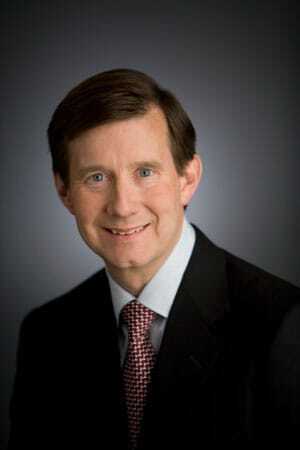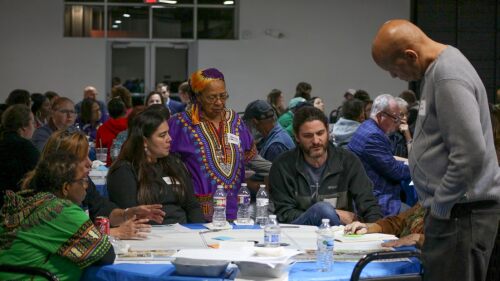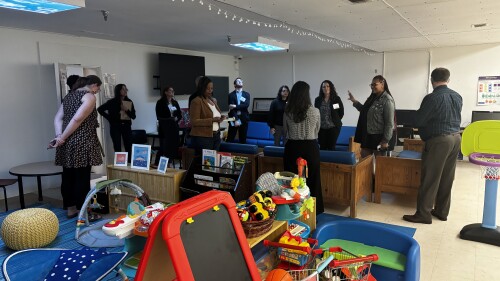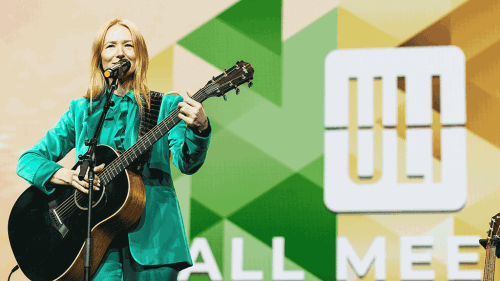With the Fall Meeting in Washington, D.C., almost upon us, there is much to anticipate. The last time we held our signature event in the U.S. capital was in 2010, and the cityscape has changed dramatically. Since then, more than 620 developments totaling more than 75 million square feet (7 million sq m) of space and $27 billion in investments have been completed in the District of Columbia. Several of these innovative projects, as well as others in Northern Virginia and the Maryland suburbs, will be showcased on tours during the Fall Meeting, demonstrating how our members have contributed to the region’s transformation through their work.
Over the past 10 years, Washington, D.C., has reversed years of population decline and has evolved into a highly sought-after place in which to live and work. It is a place defined by neighborhoods teeming with activity, with high appeal to both younger and older generations. It is gratifying to recognize that ULI and its members have played a key role in this change.
ULI has convened more than 20 Advisory Services panels in the District of Columbia alone, starting in 1958, when the Institute was asked by the city to “lay the groundwork for the future organization, planning, and programming for a better downtown.” Subsequent panel assignments included assessing commercial development opportunities for Union Station in 1980 and, in 2002, redevelopment strategies for the campus of St. Elizabeth’s, a psychiatric hospital that opened in 1855. In 2003, a panel of experts recommended ways to enliven the South Capitol Street corridor (the same challenge for the first Hines Student Competition, also that year). In 2004, another panel advised on how to successfully reclaim the Anacostia River waterfront for public use; and in 2011, yet another panel suggested creative modifications to the iconic Martin Luther King Jr. Memorial Library, designed by Ludwig Mies van der Rohe.
Building on those efforts, we convened Advisory Services panels this past July in the District to offer advice on two of the most pressing urban issues of our time—increasing affordable housing and improving sustainability by reducing energy use and carbon emissions in commercial buildings. The panels, both supported by the ULI Foundation, were chaired by ULI leaders—the housing panel by trustee Philip Payne and the sustainability panel by former ULI global chairman Lynn Thurber.
The housing panel evaluated the most effective actions the private and public sectors could take to increase the supply of affordable housing throughout the city, with a particular focus on more-affluent neighborhoods. The sustainability panel sought to identify how the Washington real estate community could help achieve the city’s sustainability goals, which include reducing greenhouse gas emissions by 50 percent from 2006 levels by 2032 and 100 percent by 2050. Recommendations from these panels, detailed in Advisory Services reports to be available at knowledge.uli.org, will be discussed during sessions at the Fall Meeting, providing lessons learned for other cities grappling with affordable housing and sustainability challenges.
The Fall Meeting will also focus on how to increase diversity throughout the industry in terms of gender, race, and ethnicity to reflect the growing diversity of our cities. ULI’s Women’s Leadership Initiative is hosting a session on raising the visibility and number of women in the industry, and another session will explore how embracing diversity and fostering inclusive business practices can positively affect organizational culture and performance.
Increasing diversity in our industry will require attracting talent from a broad spectrum of our population. It can start by exposing students at both the high school and university levels to the career options our industry provides. Toward that goal, ULI recently held an UrbanPlan Equity and Inclusion Summit, supported with a generous gift to the ULI Foundation from trustee and former global CEO Patrick Phillips, and with grant funds provided to the Foundation by the Robert Wood Johnson Foundation. This event included discussions on how the program can recruit and more thoughtfully engage with more people of color and women in schools and communities to reach a more diverse group of students. A further expansion of UrbanPlan and the development of a more targeted real estate curriculum for university students will help meet this goal.
Another example of ULI’s diversity-related efforts can be found in our Real Estate Diversity Initiative (REDI), offered through our district councils. REDI is a training and mentorship program for women and people of color, with a curriculum that follows the real estate development process and ends with a development proposal for an actual site. Now in its 10th year at ULI Colorado and its third year at ULI Minnesota, the program is being expanded throughout the district council network, also with grant funds provided to the Foundation from the Robert Wood Johnson Foundation.
Our work in these areas—creating a more diverse and inclusive industry and expanding our thought leadership on tough urban challenges—is part of ULI’s ongoing evolution into the leading global real estate organization that attracts and retains top industry leaders; the leading authority on real estate and the go-to place for industry information and expertise; and the provider of solutions to the most complex real estate and urban development problems faced by cities around the world. It is the type of work made more robust by the ULI Foundation, which, as the source of philanthropic gifts to the Institute, allows ULI to make a more meaningful difference in how our cities grow.
The Fall Meeting showcases this leadership. The meeting is a microcosm of ULI, in terms of knowledge sharing and making connections—the traditions that make the Institute such an important part of our professional lives. It is also a time to reflect on all the good work that results from dedicated members giving their time, talent, and treasure to our organization. I hope you will be inspired by your meeting experience to consider how you can help keep ULI’s momentum going strong. If you have not yet registered, I encourage you to sign up at fall.uli.org, and I look forward to seeing you in Washington!





